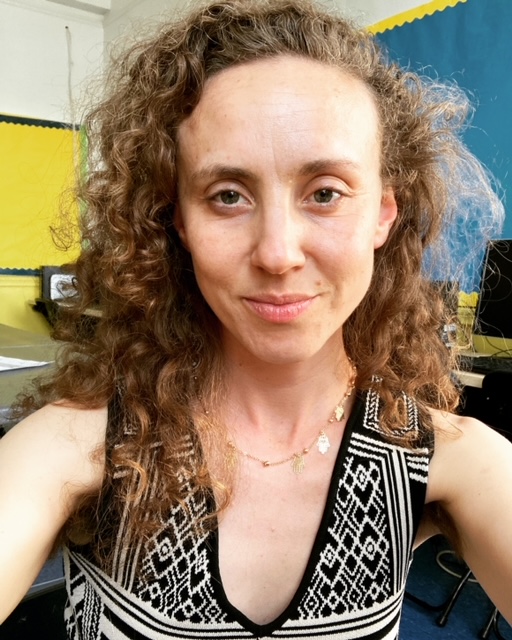
Hadar Ahuvia is a freelance dancer, performer, and choreographer. She is also about to begin rabbinical school this fall. Hadar was first introduced to Kolot as a Jewish educator and was hired by Ora Wise to teach in the Children’s Learning Program. Hadar was a teacher for 4-7 year olds alongside Franny Silverman, but over the course of her time at Kolot, she taught almost every grade. She also worked in the administrative office of the school and synagogue and tutored for B’nai Mitzvahs. Hadar has begun leading services in recent years, which she feels is a bridge between her spiritual and performance life. Being part of a congregation founded by a lesbian rabbi in an interfaith marriage has been important to Hadar, as she is queer and in interfaith partnership. Hadar went through the process of becoming antizionist while at Kolot and she felt like the congregation provided her with the space to have this journey. She has Israeli and US citizenship and comes from a working class household with immigrant parents. At Kolot, Hadar is proud of the curricula she created with Franny that were spiritually and politically engaging. She collaborated with her community of teachers to create a radical Jewish education that was not zionist and that was in solidarity with other struggles. Three words/ideas she would use to describe herself are neo-hassid, wanderer, seeker.
In this interview, Hadar Ahuvia shares in-depth about the evolution of both her relationship to Judaism and Israel/Palestine. Hadar discusses the way in which she uses dance and teaching as mediums through which to explore her relationship to Israel/Palestine, and to develop nuanced understandings of alternative ways of living in relationship with land. This exploration has brought complexity to her familial relationships, which was a key focus of the interview. As the conversation progresses, it also becomes clear that Hadar views Judaism as a constant process of seeking justice and spiritual community, as opposed to a static set of practices and regulations.
Hadar shares how, despite the different ways they practiced these values politically, she and her ancestors both shared deep care for developing an embodied relationship to land that is important to them.
In this clip, Hadar defines her Judaism as an active process of seeking justice and spiritual community.